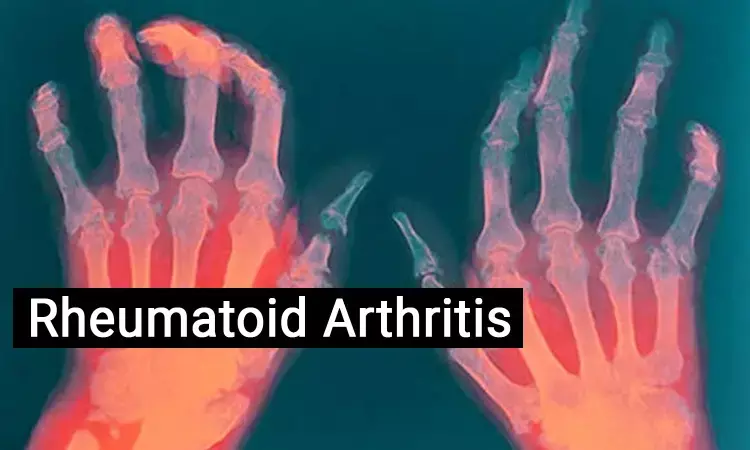- Home
- Medical news & Guidelines
- Anesthesiology
- Cardiology and CTVS
- Critical Care
- Dentistry
- Dermatology
- Diabetes and Endocrinology
- ENT
- Gastroenterology
- Medicine
- Nephrology
- Neurology
- Obstretics-Gynaecology
- Oncology
- Ophthalmology
- Orthopaedics
- Pediatrics-Neonatology
- Psychiatry
- Pulmonology
- Radiology
- Surgery
- Urology
- Laboratory Medicine
- Diet
- Nursing
- Paramedical
- Physiotherapy
- Health news
- Fact Check
- Bone Health Fact Check
- Brain Health Fact Check
- Cancer Related Fact Check
- Child Care Fact Check
- Dental and oral health fact check
- Diabetes and metabolic health fact check
- Diet and Nutrition Fact Check
- Eye and ENT Care Fact Check
- Fitness fact check
- Gut health fact check
- Heart health fact check
- Kidney health fact check
- Medical education fact check
- Men's health fact check
- Respiratory fact check
- Skin and hair care fact check
- Vaccine and Immunization fact check
- Women's health fact check
- AYUSH
- State News
- Andaman and Nicobar Islands
- Andhra Pradesh
- Arunachal Pradesh
- Assam
- Bihar
- Chandigarh
- Chattisgarh
- Dadra and Nagar Haveli
- Daman and Diu
- Delhi
- Goa
- Gujarat
- Haryana
- Himachal Pradesh
- Jammu & Kashmir
- Jharkhand
- Karnataka
- Kerala
- Ladakh
- Lakshadweep
- Madhya Pradesh
- Maharashtra
- Manipur
- Meghalaya
- Mizoram
- Nagaland
- Odisha
- Puducherry
- Punjab
- Rajasthan
- Sikkim
- Tamil Nadu
- Telangana
- Tripura
- Uttar Pradesh
- Uttrakhand
- West Bengal
- Medical Education
- Industry
New radiotracer safe and effective for imaging early rheumatoid arthritis

Reston, VA--New research shows that a novel positron emission tomography (PET) tracer that targets inflammation is safe and can clearly identify early stages of rheumatoid arthritis. The promising PET tracer, 68Ga-DOTA-Siglec-9, rapidly clears from blood circulation, has a low radiation dose, and can be easily produced. This first-in-human study was published in the April issue of the Journal of Nuclear Medicine.
Inflammation is a significant part of several chronic diseases, including rheumatoid arthritis and its related issues. While PET imaging with 18F-FDG is a valuable tool for the diagnosis and monitoring of the effects of treatments, it is not specific enough to assess inflammation.
"It's important to detect inflammation early so that patients can receive the best treatment," said Anne Roivainen, PhD, professor of preclinical imaging and drug research at Turku PET Centre at the University of Turku and Turku University Hospital in Finland. "Our institution has worked for several years to develop an imaging agent that targets areas of inflammation, and in this study, tested its effectiveness in humans for the first time."
To evaluate the radiotracer's safety and biodistribution characteristics, six healthy study participants underwent whole body 68Ga-DOTA-Siglec-9 PET/computed tomography scans. 68Ga-DOTA-Siglec-9 was well-tolerated and cleared quickly from the blood, and its radiation dose was similar to other 68Ga tracers. In one additional study participant with rheumatoid arthritis, the tracer was able to clearly detect joints with arthritis.
"We have proven that the characteristics of 68Ga-DOTA-Siglec-9 are favorable for use in patient imaging studies," remarked Roivainen. "Future studies will clarify whether 68Ga-DOTA-Siglec-9 PET imaging has the potential to detect other inflammatory diseases early. It could also help to evaluate the effectiveness of treatments and promptly identify patients who are unlikely respond to therapy."
This study was made available online in August 2020 ahead of final publication in print in April 2021.
https://jnm.snmjournals.org/content/62/4/577
Hina Zahid Joined Medical Dialogue in 2017 with a passion to work as a Reporter. She coordinates with various national and international journals and association and covers all the stories related to Medical guidelines, Medical Journals, rare medical surgeries as well as all the updates in the medical field. Email: editorial@medicaldialogues.in. Contact no. 011-43720751
Dr Kamal Kant Kohli-MBBS, DTCD- a chest specialist with more than 30 years of practice and a flair for writing clinical articles, Dr Kamal Kant Kohli joined Medical Dialogues as a Chief Editor of Medical News. Besides writing articles, as an editor, he proofreads and verifies all the medical content published on Medical Dialogues including those coming from journals, studies,medical conferences,guidelines etc. Email: drkohli@medicaldialogues.in. Contact no. 011-43720751


